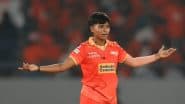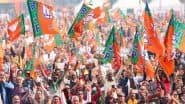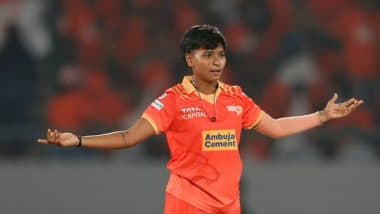Abu Dhabi, Jan 2 (AFP) South Korea are hoping Son Heung-min's dazzling pace and goals can help them end a 59-year wait to be crowned continental kings as the newly expanded Asian Cup starts at the weekend.
Holders Australia, four-time winners Japan, Carlos Queiroz's Iran and hosts the United Arab Emirates are all formidable opponents, but none will relish facing Paulo Bento's Koreans.
The 2015 runners-up have put their stamp on the international scene in recent times, stunning holders Germany at last year's World Cup before winning the Asian Games football tournament in September.
Son, 26, was at the heart of both successes and his delight was plain to see at the Asian Games in Indonesia, where victory earned the team an exemption from South Korea's compulsory, 21-month military service.
The Tottenham Hotspur forward, who has a deadly shot with either foot, has been in scorching form for his club, scoring seven goals in his last seven Premier League games. But he will sit out South Korea's first two games next week under a deal with his club in return for his release for last year's Asian Games.
Son, the most prolific Asian in Premier League history, will hope South Korea get the job done against the Philippines and Kyrgyzstan before he jets in for their final Group C clash against China on January 16.
The Koreans, edged 2-1 by Australia after the 2015 final went to extra time, haven't won the Asian Cup since 1960 -- a puzzling record considering their 10 World Cup appearances, including the 2002 semi-finals.
- Arnold's predicament -
========================
Japan are among their chief rivals in UAE, after they were the only Asian side to reach the World Cup knock-outs before narrowly going down to Belgium in the last 16.
The Blue Samurai, winners of four of the last seven editions, will demand improvements on 2015, when as defending champions they slipped up with a penalties defeat to UAE in the last eight.
Recent results have been encouraging, including a 4-3 win over Uruguay, and Hajime Moriyasu has picked on form after ditching World Cup stars Shinji Kagawa and Shinji Okazaki in favour of younger players.
Australia, however, seem to have gone backwards since they lifted the trophy in Sydney in 2015, and it's a tall order for new coach Graham Arnold who is plunged into the title defence just four games into the job.
After record scorer Tim Cahill retired, Arnold's predicament worsened last month when midfield lynchpin Aaron Mooy suffered a serious knee injury and was ruled out of tournament.
Three-time winners Iran look much more settled, and after winning plaudits for their narrow 1-0 defeat to Spain and 1-1 draw with Portugal at the World Cup, Carlos Queiroz's side have gone unbeaten in their six games since.
With attacking talent including Rubin Kazan's Sardar Azmoun, with 24 goals in 40 internationals, and Brighton winger Alireza Jahanbakhsh, Iran will expect to do better than 2015, when they were ousted in a combustible quarter-final against arch-rivals Iraq.
- Dark horses and VAR -
=======================
UAE received a body blow with the loss of playmaker Omar Abdulrahman to a knee injury, but they have plenty of firepower and are redoubtable on home ground, where they were runners-up as hosts in 1996.
Meanwhile, rivals Qatar are desperate to make a statement before 2022, when they will be the first World Cup hosts in the modern era never to have qualified for the tournament by right.
Success in UAE would be doubly satisfying for Qatar, who have been at the centre of a diplomatic storm in the Gulf and under blockade from their neighbours since June 2017.
On Saturday in Abu Dhabi, the UAE and Bahrain will open the biggest Asian Cup yet after it grew from 16 to 24 teams, paving the way for Kyrgyzstan, war-torn Yemen and Sven-Goran Eriksson's Philippines to make their debuts.
Among many sub-plots, China's stuttering attempts to become a football power will come under scrutiny, in what looks set to be Marcello Lippi's last outing as coach, while India get a rare chance to impress at the region's top level.
Saudi Arabia, who won the last of their three Asian Cup titles in 1996, should factor in the closing stages, and Syria, Uzbekistan and North Korea lurk as dark horses.
One wildcard looks set to be the introduction of video assistant referees (VAR) from the quarter-finals, which could raise the likelihood of penalties after playing a role in the record number given at last year's World Cup. AFP PDS
(This is an unedited and auto-generated story from Syndicated News feed, LatestLY Staff may not have modified or edited the content body)













 Quickly
Quickly





















